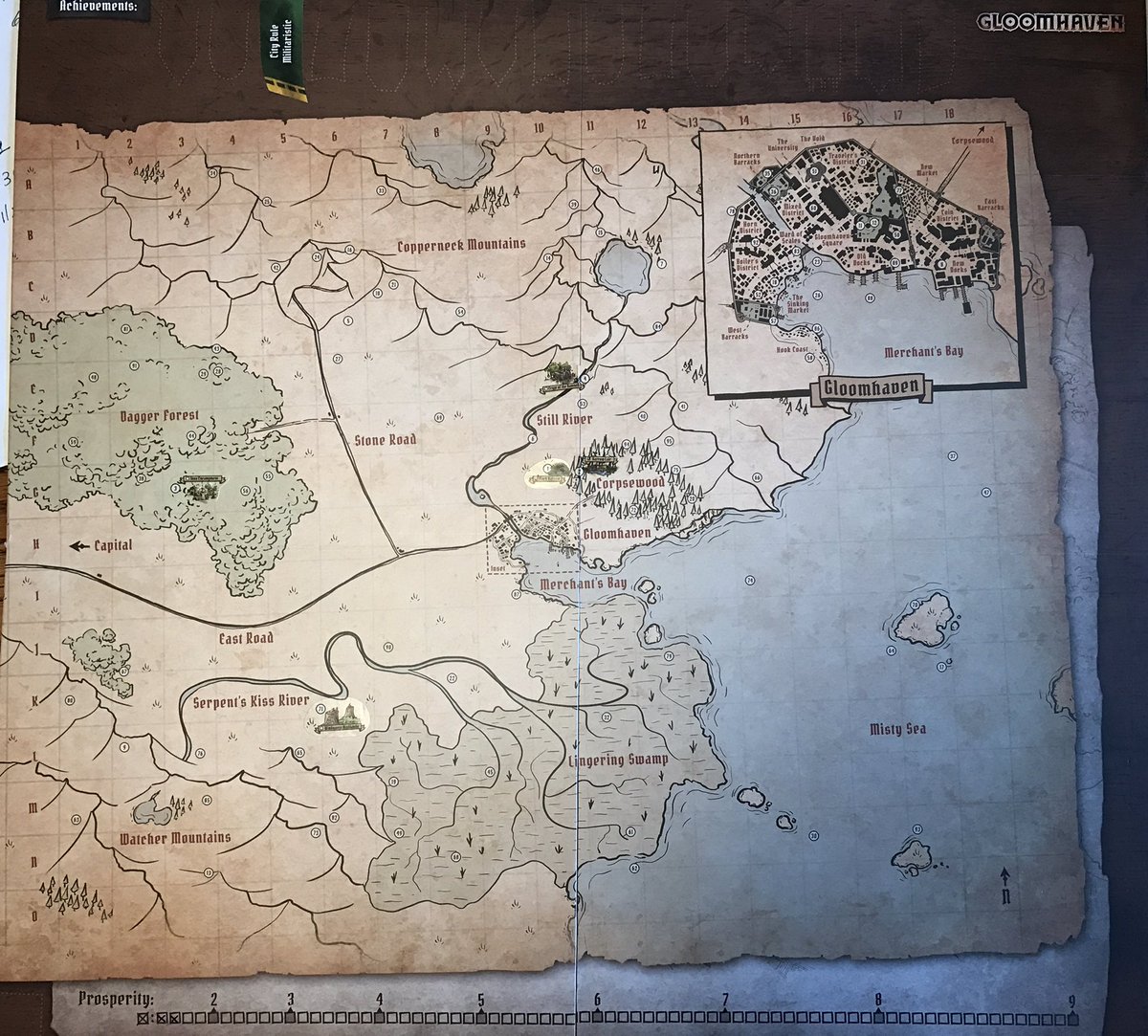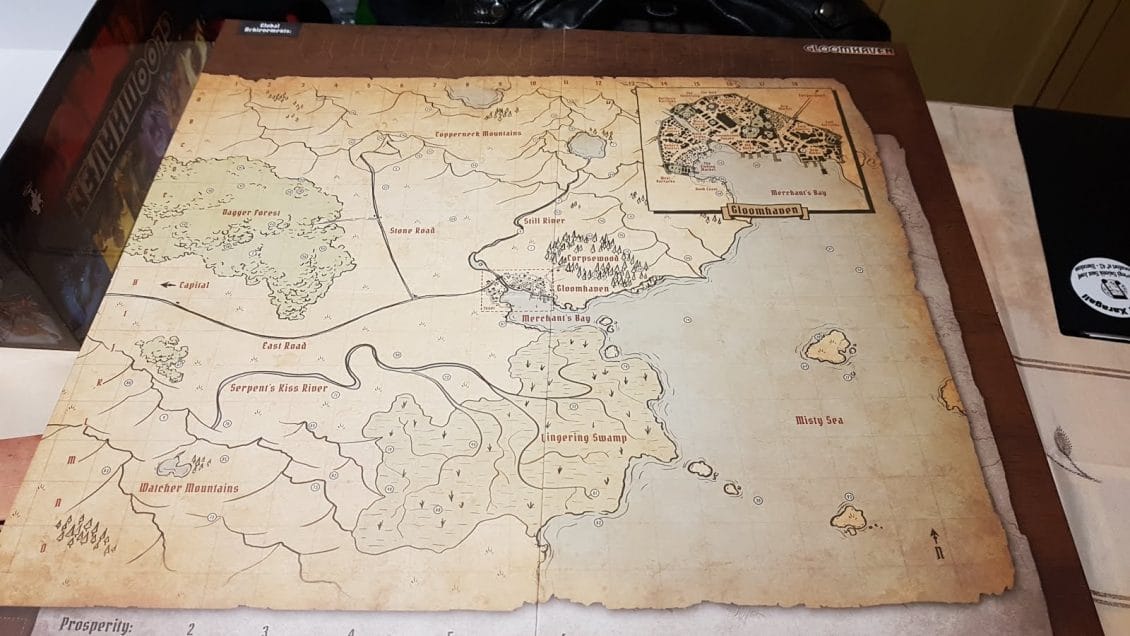

This means a smaller campaign, fewer characters, fewer monsters, and less of everything else to boot. We make a smaller version of the game that is far less of a time commitment, far cheaper, and far easier to organize. These issues have been huge barriers of entry for people, so how do we fix it? Well, like I said, this is the obvious stuff.
Gloomhaven map full#
And, again, the box is so big! It's so full of stuff! How will you organize it all? Sure, it's a good value for the money, but only if you're willing to invest a significant amount of time into it. It's intimidating and feels like a significant commitment.

A lot of people are wary of the $100+ price tag and the giant box of stuff that comes with it. So what I needed to make was a version of the game that tore down every wall the original game put up. With a good teacher and all other barriers removed, I believe that anyone with an interest in this type of game can learn and enjoy it with little difficulty. I've taught Gloomhaven to all manner of people. I see all these casual gamers sitting down for demos at conventions, or I hear about hard-core gamers getting their partners to play with them, and, well, it seems to me that the core Gloomhaven experience - that process of looking at your hand of cards and picking the best two to play - is not overly complicated. The only thing that would capture people like Gloomhaven is Gloomhaven. What I eventually realized was that a watered-down card game with the same name was never going to capture people like Gloomhaven has done. I remember play testing it at a convention, and somebody told me that it felt a lot like Splendor, which was enough for me to pack it up and never look at it again. Something simple in a small box that would feel like Gloomhaven, even if the mechanics were totally different. Around this time last year I was working on a Gloomhaven card game. I've been trying to crack this problem of getting Gloomhaven to a wider, more casual demographic for a while.


 0 kommentar(er)
0 kommentar(er)
